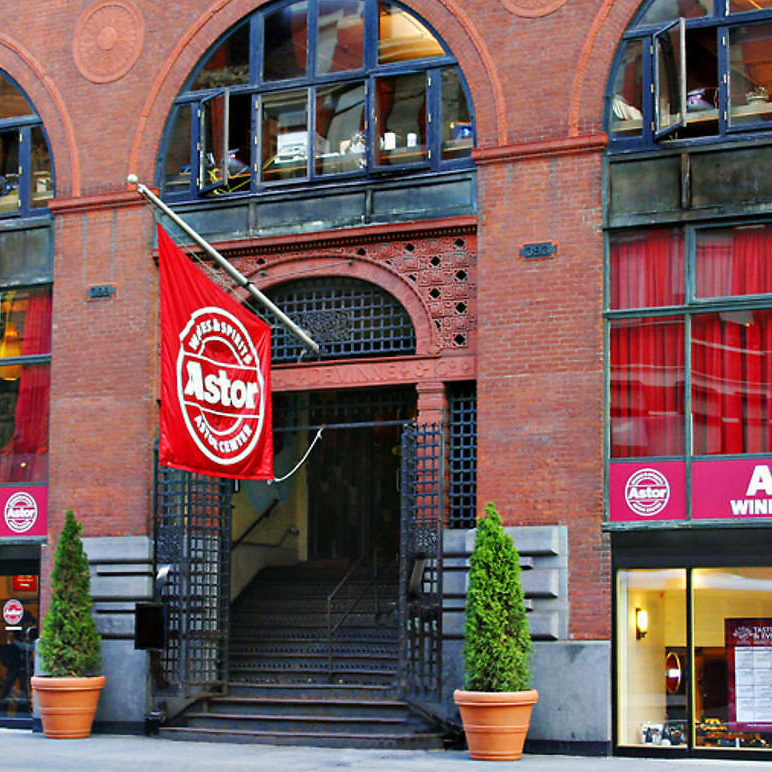Brooklyn’s New Natural Wine Bar, Rhodora, is Entirely Waste-Free
Both challenging and hospitable, the space sets a new standard for eco-friendliness in the industry

197 Adelphi Street (in Brooklyn’s Fort Greene neighborhood) is no stranger to sustainable businesses. Originally housing the carbon-neutral Oberon Group restaurant Mettā until July 2019, the address has a new tenant: Rhodora, a waste-free wine bar under the same ownership. But if you ask Henry Rich (owner) and Halley Chambers (deputy director), this reopening represents far more than the reuse of once-defunct space. “This is very much an evolution,” Chambers tells us. While Mettā was a pioneer regarding sustainability within the NYC restaurant scene, being carbon-neutral was merely a first step for the spot, rather than an end goal. But working backwards to “greenify” their establishment proved difficult, perhaps impossible. The dup decided they needed to start anew, shutter their doors and reopen with strict guidelines on how they could best be green.
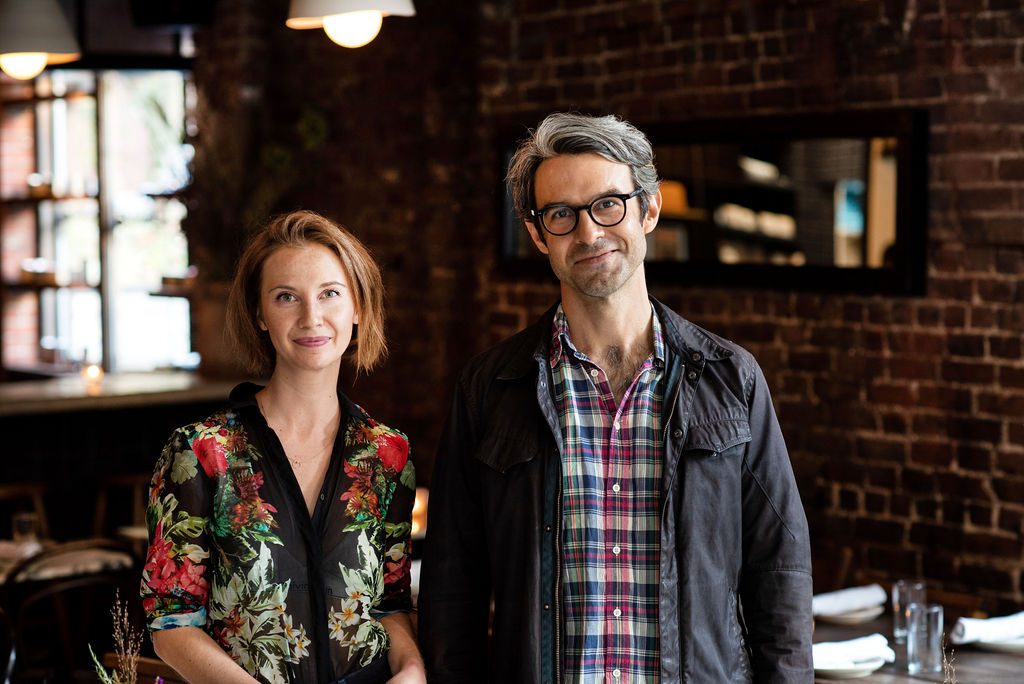
“Our end goal is so far off the map that the path to get there is fairly clear,” Rich explains. “You start with the commitment to remove the trash. That creates quite a bit of clarity in terms of what we can and can’t, should and shouldn’t do. It’s a little crazy, but it’s coherent. Then you figure out how to take responsibility for our waste stream and work with vendors who are mission aligned.”
Everyone is empowered and charged to take responsibility
Rich continues, “Zero waste leads to the anti-authoritarian management structure where we don’t have one person dealing with everyone’s food waste and trash; everyone is empowered and charged to take responsibility and works every position. All of these actions work with the ethos and culture of natural wine, which is about moving away from industrial agriculture, not using products that harm people and the world (herbicides, pesticides, chemical fertilizers, sulfites) listening to the natural environment, and making a product that the maker and their family are connected to.”

Improving upon their original offering meant approaching Rhodora with a willingness to rid the space of many elements—even some that seem crucial. They had to remove their wood-burning oven, as well as waste bins at the bar and in the bathrooms. (Recepticals for unavoidable waste will be made available, though.) Vendors and purveyors that refused to deliver their ordered goods in plastic-free packaging needed replaced. (For instance, liquor brands that don’t use recyclable caps, wine importers that cannot send bottles in compostable boxes, cheesemakers that keep cheese on inedible rinds, etc.)
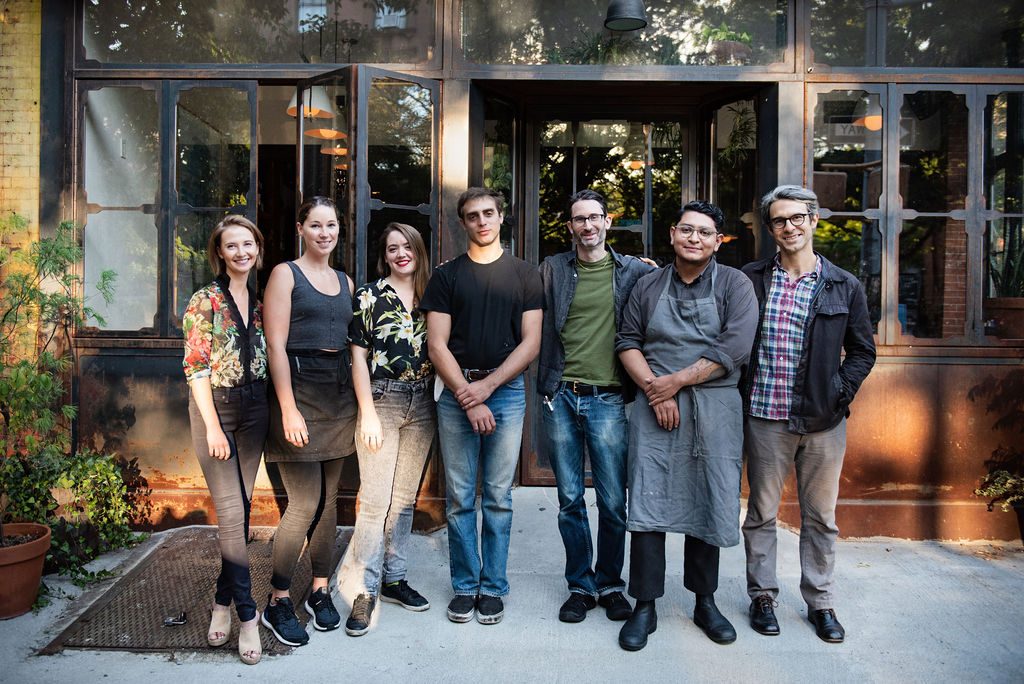
After the pair did plenty of internal auditing (from finding a dishwasher that transforms salt and water into a sterilizer, to eliminating paper receipts, and offsetting their carbon footprint) they realized that their efforts to transform their practices could trigger similar missions in others. Not only will guests be asked to abide by the trash-free policy, but employees will be responsible for maintaining the mission too. As there is no general manager, dish-washer, chef or roster of porters, individuals will be responsible for doing their own dishes, discarding leftover food into the compost and sorting outgoing recycling.

“The problem is so huge and options for taking direct responsibility are so few that any change can have a ripple affect in terms of mindset,” Rich continues. “I never used to think about how much trash or carbon I created because there is no cost incurred by creating more of it.” They’re hoping that despite being a small venue, they will be able to affect change in suppliers and guests.
“Hopefully, as individuals get more comfortable with the topics, they’ll become more politically present on these issues and as vendors get the requests more often they’ll make changes in their business practices,” he says. “The ultimate goal would be to get to the heart of the industrialized food and agriculture system where most of the problem starts, but that is a long long way off from a small wine bar in Brooklyn.”
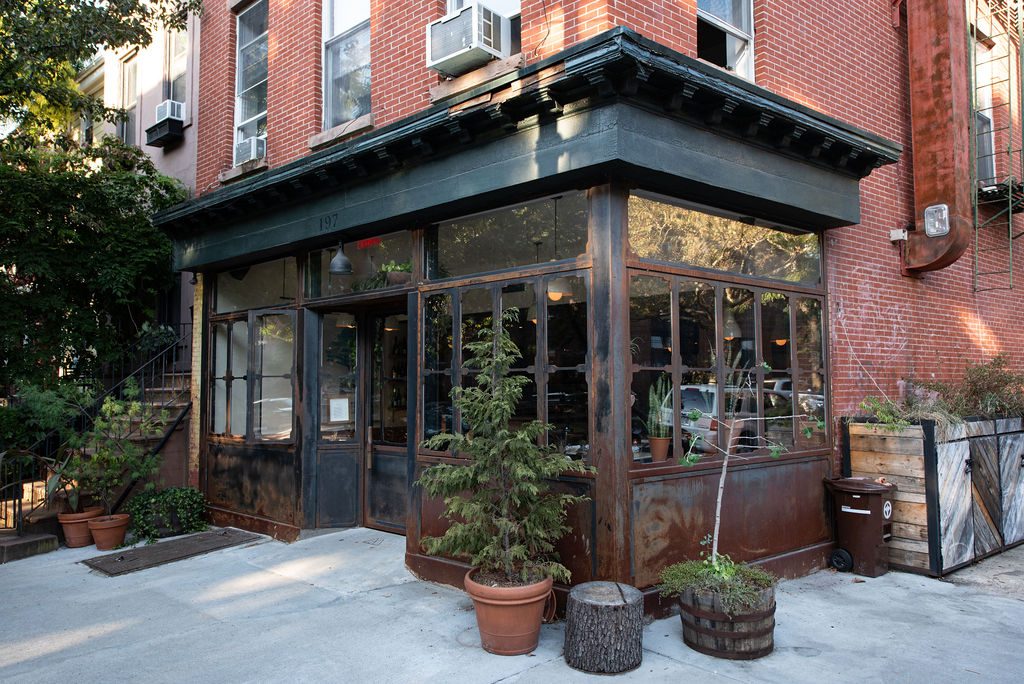
While Rhodora may be small in the sense of square footage, they are now an international symbol of innovation. Inspired by the UK’s first waste-free restaurant, Silo (which is best known for breaking down glass bottles into sand for hand-making the ceramic plates they use), this Brooklyn wine bar is NYC’s first waste-free restaurant.

To assist, Marlow & Daughters offers to bike-deliver cured meats, mousses, and pickled snacks. She Wolf also plans to pedal over loaves of bread in linen bags. D’eon Oysters will package and deliver oysters in returnable containers. Others admitted that they couldn’t meet Rhodora’s demands or would need time to rid their supply chains of single-use plastics or excess packaging. But nobody responded with a stern “no,” each was eager to find a way to better.
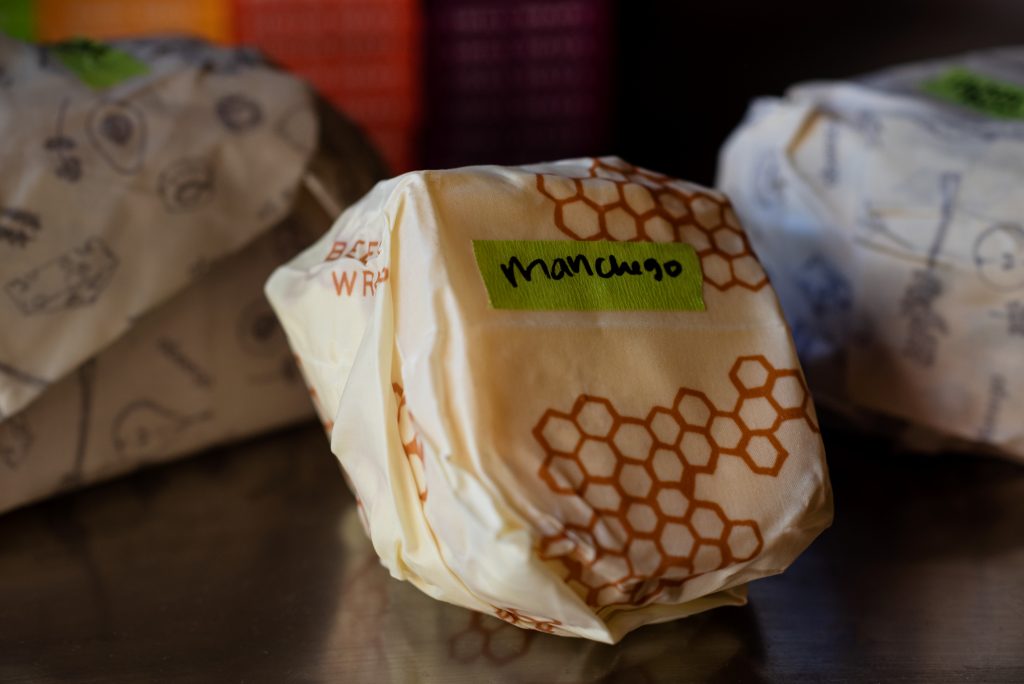
“The most surprising part of the project has been the level of support we’ve received from our team, our neighbors, and the broader natural wine community for our zero-waste mission. It’s exciting to open a new business, but we’ve received so much more good will for the social purpose of what we’re doing. We’ve also been pleasantly surprised at the level of vendor cooperation we’ve received. We asked our linen supplier to skip the plastic bags that linens generally come in; not only were they able to remove the plastic for us, they told us they were now considering doing this for all 1,000 of their accounts.”
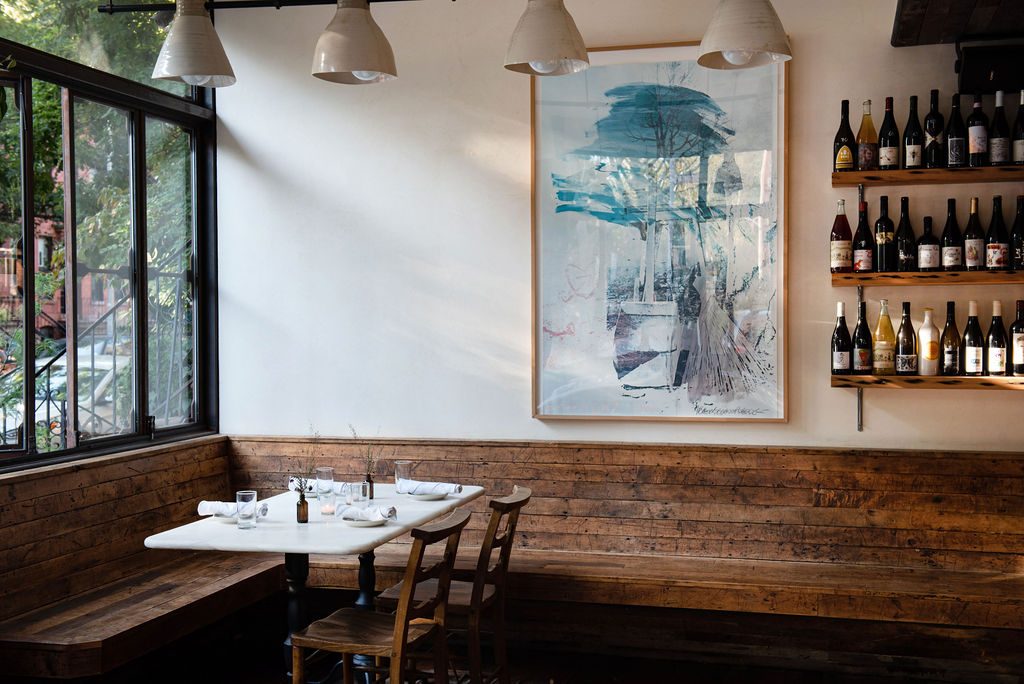
While there’s nothing noticeably absent from Rhodora, there are pivotal moments of compromise—though it never feels like sacrifice. The service remains hospitable, the food complex and ever-changing, and the experience ultimately dually challenging and inspiring. You leave wondering what exactly you can do in your own life to do better. It helps that at Rhodora you’re met by a menu full of delectable, natural French wines and Portugal- and Barcelona-inspired conservas tapas.
“Hospitality and service begins with a commitment to take care of people. It felt incoherent to offer guests an experience for the evening, only to externalize the carbon cost and waste stream, which will affect our guests and their children in the future. It’s definitely a shift to acknowledge the carbon and waste costs of what we’re doing, but our industry is one of the largest contributors to climate change in the world, so it’s also appropriate. If people feel inspired to learn more about carbon neutrality or zero waste after coming to Rhodora, great. If not, just enjoy the natural wine because it is delicious. We’re covering the waste and carbon stream either way.”
Images by Liz Clayman

